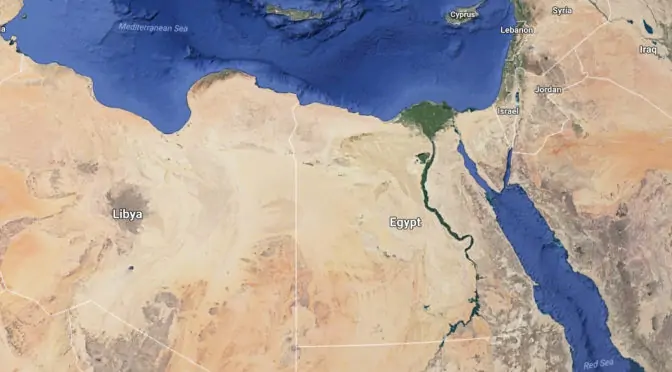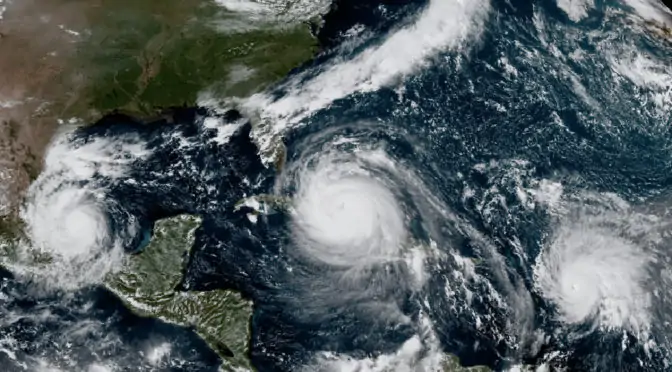Whatever way one wants to see it, despite defeats in Syria, Iraq, Libya, and the Philippines, the Islamic State has not disappeared and will most probably remain a feature of our world for some times.
The regular terrorist attacks taking place throughout the world are there to remind us that to win over ideas – and the actions they prompt, a comprehensive strategy mirroring and superseding the strategy of the enemy must be designed and implemented.
Until then terrorist attacks will continue, as the 2017 Halloween attacks in New York in the U.S. and in Kaboul in Afghanistan show (Gina Cherelus, Daniel Trotta, Reuters, 31 Oct 2017; Reuters, 31 October 2017).
It is thus twice crucial to understand what is behind these attacks: to possibly counter them while withstanding them at best as long as real victory has not taken place.
Here is what you need to know to understand, cope, and possibly fight back the Islamic State terrorist attacks (with proper references, as we are in the realm of knowledge and not opinion here).
This compendium includes 11 selected articles – i.e 40733 words / 114,5 pages.
You can read freely below a short presentation of each article, and access the complete articles by becoming a member of the Red (Team) Analysis Society (quarterly, biannually or yearly subscription available).
On terrorist attacks more specifically
Here we focus on the major socio-psychological consequences of terrorist attacks. We first explain the disconnection existing between direct exposure to the attack, objective threat and socio-psychological impacts, i.e. how people are impacted psychologically even though they are not in the immediate vicinity of the attack and how this phenomenon takes place. This will allow us better envisioning who can be impacted. We then turn to the more individual harmful psychological consequences of terror attacks, from Post Traumatic Stress Disorder (PTSD) to depression and insomnia and their impacts on businesses through impaired professional life. This will notably allow us pointing out that a crucial stakeholder for the corporate sector in terms of considering the Islamic State’s and Jihadist terrorist attacks and thus related geopolitical uncertainties is the department of human resources, which must thus be primarily involved, besides other more obvious departments such as security, risks, or sales, marketing, operations and finance. Staff in charge of exports and supplies must also become involved as the companies with whom they are dealing could be impacted by terrorist attacks. Finally, we shall turn to socio-psychological consequences with collective impacts, which have various effects on companies and de facto societies and countries, from avoidance (not doing something anymore, e.g. flying, traveling by train, visiting some countries, investing in some sectors and countries, etc.) to the rise of collectively aggressive behaviour…. read more. 4580 words / 12 pages.
Overcoming the (Western) mental confusion and trap when dealing with Islamist Terrorist attacks
“Fighting the Islamic State’s Terrorism at Home – The Third Way” to be able to “Truly defend… and Strike Back”
These two articles address the continuing and appalling confusion existing notably in Western countries when Islamist terrorism is at stake. In the midst of the caricatural debate according to which we would have the choice only between hiding the Salafi character of these terrorist attacks because they would be understood as “Islamophobia”, on the one hand, or focusing on immigration mainly as a universal panacea, on the other hand, French terrorist prosecutor Molins shows us the way forward towards finding a new and third way. We must assess coldly the threat first with all its components, before to look for solutions second. Fighting the Islamic State’s Terrorism at Home – The Third Way (the assessment 3585 words / 10 pages) and Truly defend… and Strike Back” (possible ways forward – 3137 words / 10 pages) are a contribution to this endeavour.
In the light of the ongoing terrorist attacks, it is crucial to understand the perspective and position of the Islamic State as far as these attacks are concerned. This is what this article does. It thus defines the framework for the Islamic State’s – and its members’ intentions, as well as identifies sensitive points in terms of legitimacy. From there, we may notably deduce a number of elements and factors that could be useful, in particular to intelligence services and political authorities, to screen and prioritize entities that could be, or not, possible targets, and to identify potential new threats. Conjointly, sensitive points, and discrepancies in messages, may also be used, as we shall point out at the end of the second part and in the third part below, to craft counter-psyops, counter-radicalisation and even psyops messages… Read more. 3463 words / 10 pages.
The Islamic State’s permanent all out war
The terrorist attacks of the Islamic State can only be understood if one, first, makes the effort to change one’s perspective to see the world through the eyes of the Islamic State. It is this vision that underlays the attacks. This does not mean accepting or legitimating the Islamic State. It means using good red teaming analysis, and taking the measure of the enemy … to win.
Using material from the Islamic State propaganda, we address, first, doubts and denials that were aired following the Paris attack, notably in the media and general public, and which tend still to inform the general misunderstanding on the Islamic State, regarding the reality and nature of the war with the Islamic State. We then turn to the Islamic State and its Khilafah to better understand their perception of the political order and of the related entities they are creating, or had created, and finally consider a first impact of that vision and related actions, an assault on modernity, and what that means in terms of responses…. Read more. 3468 words / 10 pages.
This is the second part of our analysis of the Islamic State’s worldview and of its impact.
We first show that the Islamic State’s belief-system deeply questions and changes the perception of what is domestic and what is foreign, then that it destroys the very notion of civilians and non-combatants. We then draw conclusions regarding the type of war that is emerging as a result of the Islamic State’s Weltanschauung (German philosophical concept referring to the deep underlying conception of the world held by one or many actors) – with potential tremendous impact for us in terms of vision, strategy and warfare – knowing that those findings will need to be refined and eventually revised as the war unfolds and as actors evolve and change…. read more. 4291 words / 11 pages.
The global perspective of the Islamic State and its impacts
The global perspective of the Islamic State demands that we understand the Islamic State fight in a global way. It is neither limited to a war that would be classically understood, nor to a specific bounded territory, e.g. Syria, Iraq, Libya etc.
After the Winter 2015 strings of terrorist attacks, it had become even more obvious than previously that the Islamic State fights globally. This article suggests that one also needs to integrate a global geographical level to our response to correctly fight the Islamic State. First, we recall that the Islamic State and its Khilafah are inherently a global warrior polity, thus aiming at operating globally. Second we look at what we knew of the capacity of the Islamic State in November 2015 to reach out globally, and underline dynamics operating between different components of this capability. Even though the capabilities of the Islamic State have now changed and been seriously reduced, the understanding and dynamics at work are still valid and must be considered. Finally, we turn to the last element of the very capacity to act globally, the scope of the Islamic State global imprint…. Read more. 4003 words / 12 pages.
This article ends the part of our series singling out risks to a strategy that would only or mainly pay attention to one theatre of war and to one dimension and focusing on the Islamic State global geographical implantation. It looks at then maybe less known cases of global outreach for the Islamic State and its Khilafah: Malaysia and Indonesia, as well as the Philippines in SouthEast Asia and Bangladesh in South Asia. This article written in January 2016 constitutes an early warning for the siege of Marawi in the Philippines, which took place over the Summer and beginning of Autumn 2017, as well as for the increasing imprint of the Islamic State there, for example. … Read more. 3525 words / 10 pages.
But who carries out the terrorist attacks and why? Why do Asian and European citizens join the Islamic State?
We explain the risks entailed by the existence of and increase in mobilization abroad, or, more specifically, outside the territory the Islamic State rules or has conquered. This inflow of foreign fighters can be seen as a security issue for three major reasons. First, it enhances the Islamic State’s fighting power. Second, it leads to a threat to see attacks carried out at home by those foreign fighters, not only once they come back, but also if they are stopped leaving. Finally, the symbolic impact of a successful foreign mobilization interacts with the connectedness of each mobilised foreign individual to enhance the power of the Islamic State psyops and potentially intensify the first two elements of the threat…. Read more. 2989 words / 9 pages.
How and why the Islamic State attracts “foreign” fighters
“Attracting Foreign Fighters” (Part 1)
We first present the set of Islamic State psyops “recruitment” products used, notably initially before a crackdown took place on social networks and before the Islamic State lost in Mesopotamia. We then turn to the framework for understanding established by existing research. We then focus upon two necessary elements that were identified as present in most or all fighters that were recruited: a quest for purpose and meaning, as well as a search for belonging. Those elements are at the core of a first complex around which messages and features favouring mobilization are organised and that we shall detail with the next post, which will also focus on the second complex, organised around the theme of authority, rules and exercise of liberty…. Read more. 3661 words / 10 pages.
“Foreign Fighters’ Complexes” (Part 2)
This article further refines, always using the Islamic State recruitment psyops products, the various elements identified by previous research, which we understand as organised in two complexes*, the first constellated around the core “quest for meaning and related need for belonging”, and the second around authority, rules and exercise of freedom…. Read more. 4031 words / 10,5 pages










